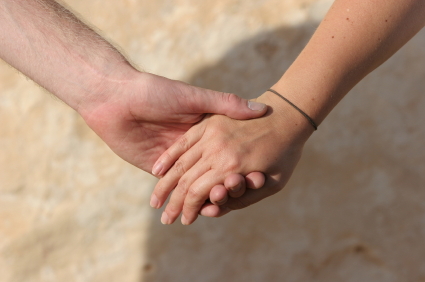
Years ago, I wrote about the importance of choosing to trust. I had learned that while being quick to be skeptical made it less likely that I would be hurt (although it didn’t prevent this in its entirety), it also made it less likely that I would have relationships with a firm foundation. As I wrote at the time, “if we expect failure, people are often all too-willing to live up to our expectations.” We thus create what we suspect; we believe that we will be disappointed, and we are.
Yet, any good relationship requires trust. Sometimes this comes easy either because we have decided that we don’t have much to lose or because we have seen the person prove faithful in that area time and time again. However, when faced with new and difficult situations I find myself reverting to my previous habits. I want to control and dictate what will occur thereby “ensuring” the result that I want. I want to plan and strategize to mitigate the possible damage. In short, I place my trust in myself, which doesn’t leave much room for me to give it to anybody else. And the irony is that this probably causes just as much, if not more damage to my relationships than if I more freely relied on the people God has given me.
So, I must choose to trust. Not in a naive, flippant way, but in a way that acknowledges that God has graciously given me people who I can depend on. I need to remember that trust doesn’t require perfection; if it did none of us would be able to trust or to be trusted. In my case, this means that when our family faces uncertainty, I need to let my husband know that I trust his leadership and the work that God is doing in His life. For younger readers, it may mean trusting their parents’ authority even if when they don’t understand the reasons for their biblical directions. For others, it may mean letting someone else help them, even if they want to do everything on their own. Things may not turn out the way that you want; it’s possible that they may turn out better. But even if they don’t, you can always trust the One who has ultimate control. You can make the choice to trust knowing that ultimately He is at work in the circumstance to bring out His good purposes, for your life, and for all His children.
It’s important that we use discretion with whom we trust. However, just because we can’t trust everyone, doesn’t mean we shouldn’t trust some people. We may be scared because choosing to trust means that we are letting go of a bit of our control. But in doing so we are also acknowledging the greatest blessings can’t be controlled.
